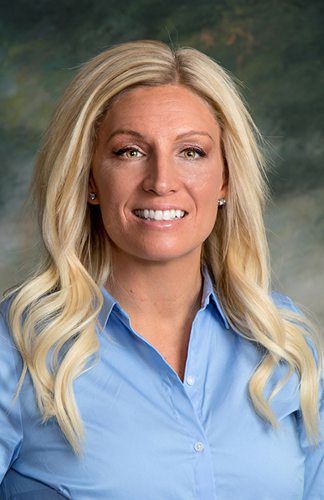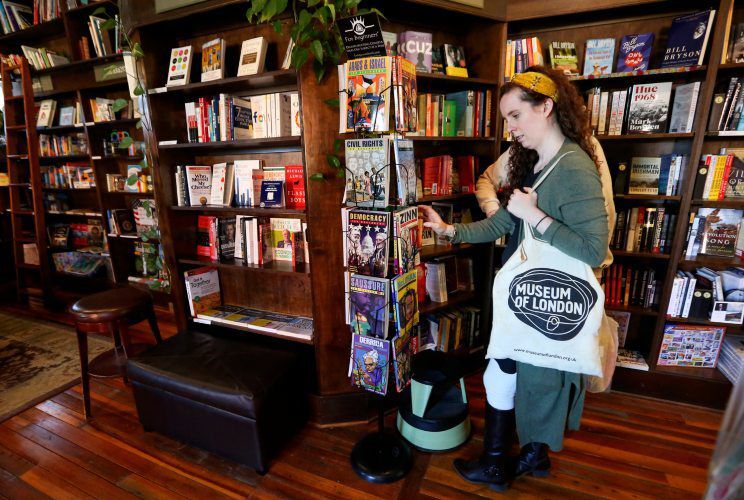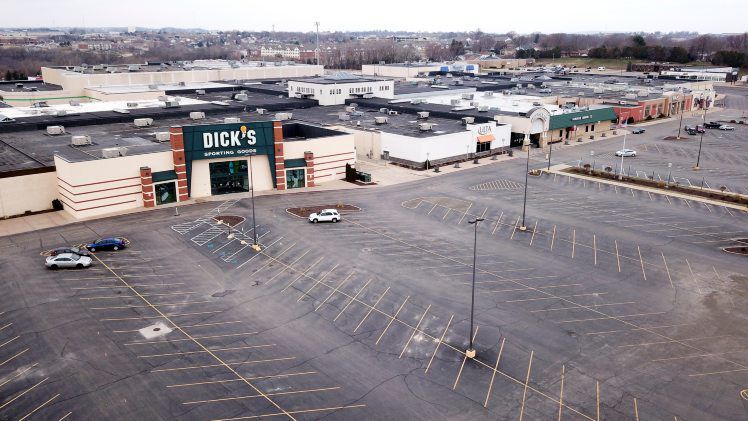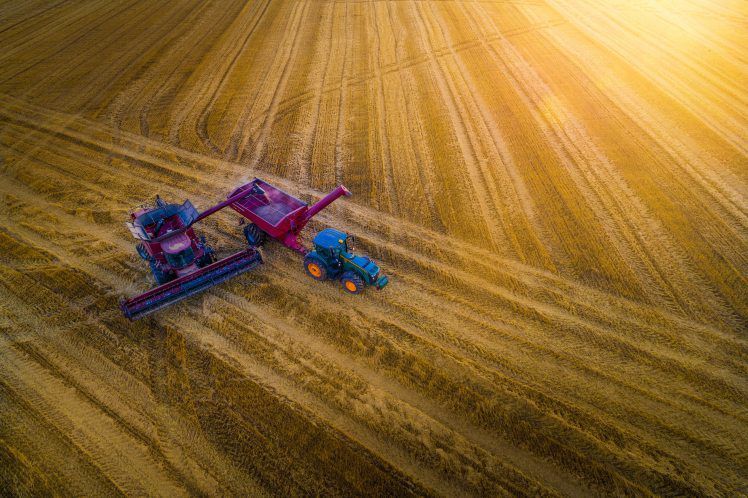Being able to bring a Major League Baseball game to the Field of Dreams was a tourism grand slam for the Dyersville, Iowa, area.
“You could just feel the excitement in the community,” said Karla Thompson, executive director of the Dyersville Area Chamber of Commerce.
However, the anticipation of thousands of visitors to the iconic movie site — as well as the boost for local businesses — dried up as COVID-19 enveloped the United States. Organizers were forced to reschedule the game for 2021.
COVID-19’s impact spanned all industries and led to increased unemployment, decreased consumer spending, shuttered businesses and a major hit to the U.S. economy.
Local industry leaders expect that what they’ve seen in 2020 will carry over into at least part of 2021.
Tourism
Thompson said Dyersville saw an overall drop in visitor traffic in 2020 due to COVID-19.
The Summer Farm Toy show canceled its June in-person event and went virtual. The National Farm Toy Show was held in November, though masks were required for attendees as a safety precaution.
The Field of Dreams continued to welcome visitors, benefiting from being an outdoor venue where people can keep their distance from each other.
Dyersville’s tourism drop reflected a national trend. While trends have rebounded some in recent months, the U.S. Travel Association states that the pandemic has caused $443 billion in cumulative losses for the U.S. travel economy since March 1. Federal, state and local governments lost out on $57 billion in tax revenue during that time frame.
Thompson said she expects a gradual increase in tourist traffic in 2021, though that is dependent on pandemic trends.
“It’s hard to forecast what to expect,” she said. “Everyone’s comfort level is going to be different. I don’t think there will be a big wave of people (all at once).”
Retail
Brick and mortar stores already grappling with the growth of online shopping were dealt a worse hand by COVID-19.
“2020 blew everyone’s business plan to smithereens,” said Joe Bell, a spokesman for Kennedy Mall.
Deloitte research shows overall retail sales dropped 20% between February and April, with the largest losses in categories like clothing and accessory stores and department stores, which dropped 89% and 45% respectively.
Bell said as the year went on, retailers have seen some relief as people became more active and wanted to get back into stores. He expects that recovery to continue into 2021, though it will be slow for the near future. While some people are eager to get back out, others are more hesitant.
One pandemic-related change that will likely endure for major retailers is the convenience of curbside pick-up rather than going inside a store. Bell also said online shopping will continue its growth, and retailers need to be able to adapt.
Real Estate
One of the few industries to have a bright year was real estate. Ashley Adams-Erschen, Realtor and owner at Re/Max Advantage Realty in Dubuque, said she was pleasantly surprised to see local home-buying trends remain strong throughout 2020.
“Obviously the (low) interest rates play a large part in that,” she said. “The rates are so low, it’s hard to pass that up.”
The East Central Iowa Association of Realtors, of which Adams-Erschen is president, reports residential sales between January and October 2020 were up 15% from the same time frame in 2019. She said the trend was especially strong among homes in the $150,000-$200,00 range, generally considered a first-time home buyer range.
Dubuque’s low inventory of available houses makes the market extra competitive, according to Adams-Erschen. People looking to buy need to act quickly and make offers above asking prices to be competitive.
With interest rates projected to remain low throughout 2021, Adams-Erschen expects the competitive housing market to continue.
Finance
Heartland Financial offers an essential service with its 113 banking locations across 12 states. So when COVID-19 hit, officials needed to figure out how to safely continue operations.
Bruce Lee, president and CEO of Heartland Financial, said the solutions included temporary limits to services at bank locations, though as of November only two of their 113 locations were closed to the public. The rest are either drive- thru only or have their lobby services open.
Lee said staff at their retail banking locations are working on rotating schedules in order to prevent a branch-wide issue if an employee becomes infected. Other employees have the option of working from home to limit office interactions.
“We’ll see this well into 2021,” Lee said of those precautions.
One initiative Heartland launched in Wisconsin is video banking, which Lee said allows customers to connect remotely with a banker. Though that planning preceded the pandemic, it provided another opportunity for virtual customer service. Mobile banking continues to be a highly-utilized service among customers.
Lee also sees a greater trend in the business world of giving more employees flexibility to work from home.
Small business
While COVID-19’s impacts were deep for many large retailers and food service chains, it’s been worse for the small, locally-owned businesses.
Jay Wickham, regional director of the Small Business Development Center in Dubuque, said those Main Street shops and restaurants will continue to feel that pain into 2021. Online shopping due to the pandemic has put them at an even greater disadvantage to behemoths like Amazon and Walmart. Local restaurants continue to struggle with smaller dining crowds.
“I really fear for them now and in 2021 because their path is much more difficult than the giants of industry,” he said.
Wickham noted that small businesses that have figured out how to be more nimble have fared better, including creating or expanding an online retail presence, and adding curbside/delivery food options.
One bright spot has been the unprecedented actions of the federal government to provide financial relief to businesses to help offset COVID-19-related hardships. Wickham said providing more aid in 2021 will be necessary to help businesses survive and to prop up the economy.
Wickham said the Dubuque area also saw a significant drop in new business start-up activity since April. He expects there will be more start-ups as the effects of the pandemic subside.
Education
Northeast Iowa Community College always strives to meet students where they’re at, according to President Dr. Liang Chee Wee. And 2020 provided the ultimate challenge to that mission.
NICC’s initiatives included hosting more online-based classes, with a live meeting requirement. The school ensured access to technology for both students and staff to participate from their homes.
Staff have also been mindful of checking on the emotional well-being of students who might have work or family-related stress in addition to their schoolwork.
“We were really trying to take a look holistically at the students,” Wee said.
Wee acknowledged that online learning is not the right system for all students, and they’ve had some drop out. He expressed concern for how that disruption could impact their path to a degree.
For others, Wee said, having more online learning options is more convenient, and he expected to see more demand and focus on that in the future. He said being able to quickly pivot to an online lesson also offers an ideal alternative to canceling classes on bad weather days.
“I think the trend would be to create more options for our learners — not to say that there’s just one way to learn or to teach,” he said.
Agriculture
COVID-19’s deep impact on restaurants also has trickled back to farmers.
Larry Tranel, a dairy specialist at Iowa State University Extension, said restaurants are a significant consumer of meat and dairy products, especially cheese. So with those businesses closing temporarily or permanently due to the pandemic, farmers also are feeling the pain.
“That’s really going to play a lot into the 2021 outlook,” he said of COVID-19’s impact on the restaurant industry.
A bright spot during 2020 was the federal government’s initiative to invest billions of dollars in aid for farmers affected by supply chain impacts, as well as purchasing those ag products to send to food banks nationwide to help meet a pandemic-related increase in demand for food assistance.
Tranel said the status of COVID-19 will dominate the 2021 outlook for agriculture. If there is prolonged impact on supply chains, federal aid should continue. He said there still are opportunities in small farming, including niche markets like organic, and there are many good families still committed to their work.
“The big issue is that we need to protect farmers’ mental health as we go through all these things,” he said. “There are opportunities for agriculture. It’s not as depressing as it’s made out to be.”



















